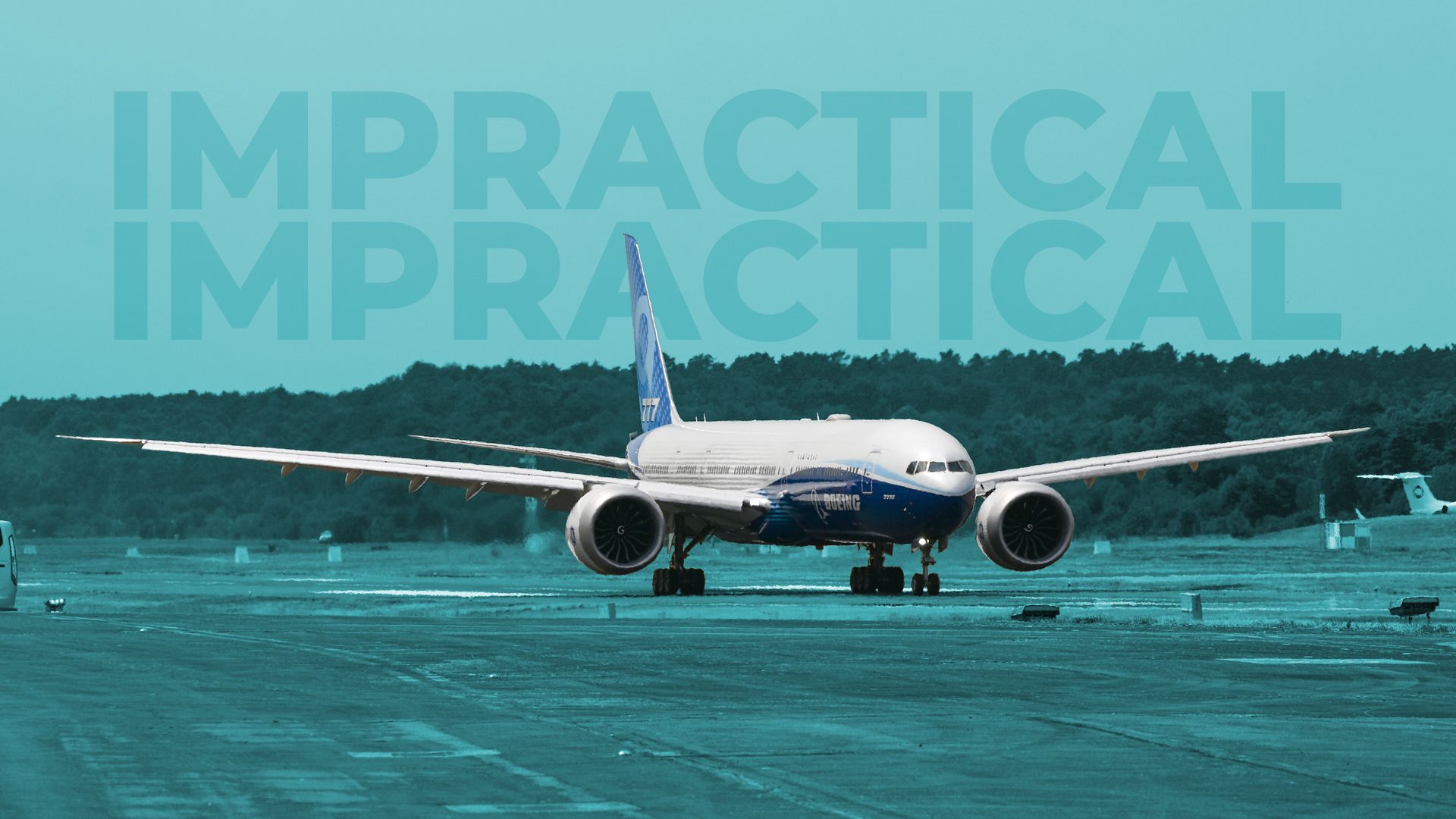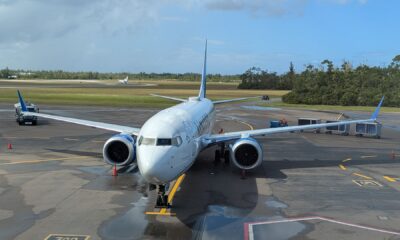World
US Airlines Shun Boeing 777X Amid Market Concerns and Delays

The anticipated launch of the Boeing 777X series faces significant hurdles as no major US airlines have announced plans to place orders for the aircraft. The primary challenge lies in the aircraft’s size, which does not align with the operational needs of American carriers. Lufthansa has positioned itself as the launch customer, intending to replace its aging fleet of 747 aircraft on trans-Atlantic routes. In contrast, many international airlines that operate from concentrated hubs and cater to high demand for long-haul flights are viewed as the main potential buyers.
The reluctance among US airlines can be attributed to a lack of confidence in the 777X program, which has been marred by significant manufacturing delays and regulatory challenges. Instead, American carriers exhibit a strong preference for the smaller Boeing 787, which offers a more favorable balance between capacity and operational costs. American Airlines and United Airlines continue to operate substantial fleets of previous-generation Boeing 777 aircraft, which still have considerable service life remaining.
US Airlines’ Reluctance to Embrace the 777X
Concerns regarding the dimensions and capacity of the Boeing 777X have left Delta Air Lines, United, and American Airlines hesitant to commit to the aircraft. With its design intended to succeed the previous 777 family, the 777X aims to fill the gap left by the retirement of the 747 and A380. The large aircraft is viewed as less compatible with the hub-and-spoke network model that dominates the US aviation market, as it may not be able to achieve full passenger loads on every route.
Both Delta and United have pivoted towards smaller aircraft, which allow for more flexible deployment without the pressure of high load factors. While American Airlines has plans to modernize its fleet of 777-300ER and 777-200 aircraft, it is currently focused on acquiring the 787 and 737 MAX models.
Technical challenges have compounded US airlines’ hesitance to embrace the 777X. Issues such as a door panel explosion during testing and various engine problems have led to doubts about the aircraft’s certification and long-term reliability. Furthermore, American Airlines lacks the ultra-long-haul routes that the 777X is designed to support effectively.
Competitive Landscape and Market Dynamics
The Boeing 777-8, the smaller variant of the 777X series, faces stiff competition from the already operational A350. Many airlines are opting for the stretched variant, the 777-9, which has garnered a higher order count despite the lingering uncertainty surrounding its performance and fuel efficiency.
The ongoing delays in the 777X program have prompted airlines to turn their attention to readily available alternatives from Airbus and other smaller Boeing models. The prolonged certification process, coupled with manufacturing challenges, has eroded confidence in Boeing’s ability to deliver the aircraft on schedule. As of now, there are 438 unfilled orders for the 777X family, with deliveries expected to begin in 2026.
The cargo variant, the Boeing 777-8F, has also encountered setbacks, now projected for delivery in 2028 instead of its initial timeline. Despite having over 50 orders, the freighter version has yet to generate significant interest from the US air cargo industry.
In summary, the Boeing 777X series faces an uphill battle in securing orders from US airlines due to a combination of concerns over its size, manufacturing delays, and the evolving needs of the airline industry. While international carriers may still show interest, the future of the 777X in the US market remains uncertain as airlines continue to adapt their fleets to meet changing demands.
-

 Politics4 weeks ago
Politics4 weeks agoSecwepemc First Nation Seeks Aboriginal Title Over Kamloops Area
-

 World5 months ago
World5 months agoScientists Unearth Ancient Antarctic Ice to Unlock Climate Secrets
-

 Entertainment5 months ago
Entertainment5 months agoTrump and McCormick to Announce $70 Billion Energy Investments
-

 Science5 months ago
Science5 months agoFour Astronauts Return to Earth After International Space Station Mission
-

 Lifestyle5 months ago
Lifestyle5 months agoTransLink Launches Food Truck Program to Boost Revenue in Vancouver
-

 Technology3 months ago
Technology3 months agoApple Notes Enhances Functionality with Markdown Support in macOS 26
-

 Lifestyle3 months ago
Lifestyle3 months agoManitoba’s Burger Champion Shines Again Amid Dining Innovations
-

 Top Stories2 months ago
Top Stories2 months agoUrgent Update: Fatal Crash on Highway 99 Claims Life of Pitt Meadows Man
-

 Politics4 months ago
Politics4 months agoUkrainian Tennis Star Elina Svitolina Faces Death Threats Online
-

 Sports5 months ago
Sports5 months agoSearch Underway for Missing Hunter Amid Hokkaido Bear Emergency
-

 Politics5 months ago
Politics5 months agoCarney Engages First Nations Leaders at Development Law Summit
-

 Technology5 months ago
Technology5 months agoFrosthaven Launches Early Access on July 31, 2025





















